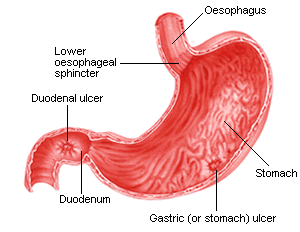Menjaga dan Menghargai...
 Bismillahirrahmanirrahim
Bismillahirrahmanirrahim
Assalamualaykum dan salam sejahtera buat semua.
Buat sahabat-sahabat yang sentiasa datang berkunjung ke mari, moga sihat sentiasa dan rahmat Allah sentiasa memayungi hari-hari yang kita lalui. Hari ini saya ingin berkongsi satu rasa, rasa yang terbit seketika saya membaca satu artikel daripada blog sis zabrina, seorang penulis blog yang cukup baik saya rasakan yang sering mengajak pembaca untuk berfikir dan berfikir tentang kehidupan dan segala rahsianya yang sentiasa membawa kita kepada suatu galakan dalam hidup. Ya ya, motivasi. Susah betul nak keluarkan perkataan itu.
Satu artikel yang cukup baik untuk dikongsikan di sini moga memberikan manafaat buat kita bersama, cerita tentang anugerah yang dikurniakan Allah kepada kita yang seringkali pula kita cuai dan mengambil mudah dalam aspek penjagaannya. Moga kita lebih menghargai pemberian Allah kepada kita dan menjaganya dengan sebaiknya. Saya mengambil keratan artikel tersebut berkaitan penerangan yang diberikan oleh Dr. Abd Hamid Mat Sain berkaitan perut manusia.
Stomach is a large part (organ) of the hollow gastrointestinal tract. Besides being hallow, it also has the amazing capability to expand and contract. It also serves the function to digest the food by the enzymes that are produced from the stomach wall.
Stomach will expand when we eat food or drink water. The more we eat or drink, the more expanded the stomach will be. Naturally, we should stop eating when the stomach is full. But, how do we know when the stomach is full?
Every time when we eat or drink, the volume of food will start to occupy the space in the stomach. Once the original space or room in the stomach is filled, we will feel full. However, if despite feeling full, we still continue eating, our stomach is programmed to stretch and expand itself to accommodate the incoming food.
This stretching of the stomach wall will also stretch the nerve endings within the wall. These nerve endings are connected to the nerves which are also connected to our brain. These nerves are called Parasympathetic nerves and it is a part of the nervous system that is outside human voluntary control known as Involuntary Nervous System or Autonomic Nervous System.
So, this is what happens- once the message of “stomach fullness” from the stomach wall nerve endings travels up to the brain, the brain senses the information and gives the feeling of fullness and it will expect that we stop eating. Sometimes we don’t do that. We continue eating due to our voluntary desire to eat more especially if the food is so delicious or perhaps because we cannot to resist the social enticement.
In this situation, the stomach wall will be “over stretched” and the person will get the extreme feeling of fullness or tightness in the belly.
For the stomach to carry its function to digest food it needs some room. But if a person overeats, there will be no room left for a smooth digestion to take place and this gives rise to sluggish digestion. This sluggish digestion will cause the person to feel uncomfortable or even may experience pain in the belly.
To treat or improve this indigestion, there are so many Over the Counter (OTC) medications that we can use. They are usually in the form of fizzy(gassy) antacids. The ‘fizziness’ tends to breakup the foodstuff into smaller bits while the antacids will reduce the acidity of the stomach wall and hence reduces the pain.
Indigestion as described above is a clinical situation brought about by “overeating”. It is not a disease per se because there is no permanent damage to the structure of the stomach. It is just a transient process that eventually could lead to illness.
Just imagine if the overstretching and expanding of the tummy takes place every day, or every weekend, or every month during our 40 years old life! Surely there will be some degree of structural damage to the stomach especially if the foodstuff that is consumed contained high level of substance that is toxic to the gentle tissues of the stomach wall.
What are the substances that potentially have a negative effect on the stomach? They can be ingredients that make food palatable like spices or social substance like alcohol that only serve to satisfy the person’s desire to eat or drink. Smoking which has no food value to the stomach at all is included too. Quite often they are also toxic to the stomach wall and could give rise to structural damage called Gastritis.
This structural damage can be seen by inserting a flexible telescope through the mouth into the stomach. This investigation is called Endoscopy. Apart from having a direct look at the stomach wall during this procedure, the Endoscopist can also take bits of stomach wall specimen (biopsy) to test for the germs Helicobacter Pylori or to look for cancer cells.
If Gastritis is left untreated, it can lead to further structural damage in the form of Ulcers. Ulcer is basically a structural damage whereby the inner layer of the stomach wall has been eroded exposing the underlying structures such as nerve endings and blood vessels to the erosive effect of stomach juices.
If the nerve endings are exposed to stream of acid during digestion after eating, one can imagine the pain a person suffers. If the blood vessels are exposed to the flooding acids during digestion and walls of the blood vessels are corroded away by the acids, then there is a major bleeding catastrophe at hand.
This bleeding from the stomach wall will occupy the space in the stomach. If the stomach space is filled up, the overflow blood will then find a channel out of the stomach. If it splashes up the esophagus and through the mouth, then the patient will vomit blood. If it trickles down the intestines, then the patient would pass out blood in the stool in an altered form usually black in color. If this bleeding is not arrested (stopped) urgently one can imagine the amount of blood that will be lost from the circulation and if this continues it may cause death.
In the bleeding situation like this, the Endoscopist has to perform an emergency Endoscopy to arrest the bleeding by clipping or injecting the bleeding vessels. Sometimes if the bleeding continues despite this Endoscopic treatment, then the patient will be subjected to an emergency operation to stop the bleeding. This major emergency operation is very risky and life-threatening especially in patients with other underlying diseases like diabetes, heart disease or kidney disease.
Apart from ulcers, as a result of a long term insult to the inner stomach wall by various toxins that people consume from outside and also long term infection by the bacteria Helicobacter pylori, cancer can also develop. Quite often one is not able to distinguish the symptoms of gastritis, ulcers and stomach cancers. Only Endoscopy can clarify and confirm the diagnosis.
My advice to everyone reading is not to take for granted the wonderful gift God Al Mighty has given us. Take great care of our stomach organ and be alert should it send us ‘signals’ that it is in pain. Visit your doctor, surgeon or gastroenterologist for immediate consultation should you experienced any pain.
Menarik bukan? maaf tidak sempat untuk menterjemahkannya kedalam bahasa ibunda tapi rasanya semua pun boleh faham. Buat sahabat-sahabat yang berkesempatan boleh la jenguk-jenguk juga blog sis zabrina tu dan insyaAllah boleh dapat lebih banyak manafaat dari membacanya. Ilalliqa' Selamat berimtihan buat semua.
Jazakumullah Khairan Kathira...
Ps: Dr Abd Hamid is a surgeon practicing in Malaysia. He is the owner of an e-health group giving free surgical consultation online as part of his community service.



No comments:
Post a Comment